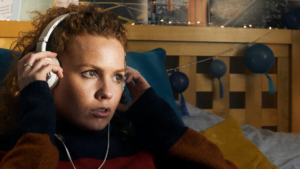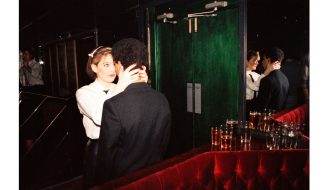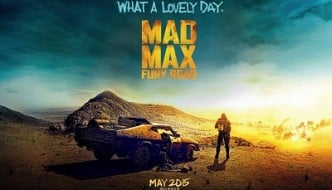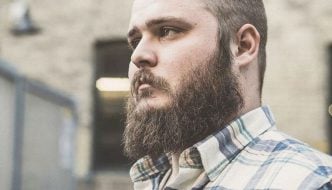
Please Introduce Yourself (Dir. Elsa Hunter-Weston). Source: BFI
Last month, the BFI held their Future Film Festival 2021, which gives filmmakers aged 16-25 a chance to showcase, network and learn in the biggest event of the year for young filmmaking talent.
The State of the Arts got to speak to five directors featured in the festival, all hailing from the North of England. Our series starts with an interview with Elsa Hunter-Weston, director of ‘Please Introduce Yourself’.
‘How can I articulate myself when articulation is the problem?’ Wrestling with your identity in early adult life is a universal theme. In her film, ‘Please Introduce Yourself’, Liverpool born director Elsa Hunter-Weston explores the theme through the eye of Eliza, a young train obsessed D/deaf woman as she navigates the challenges leading to her first job interview.
The film, a three-minute mix of still and moving images explodes at a rapid pace across three ‘cubes’ on screen. It’s a barrage of visual information driven by the thread of its central character, Eliza and was nominated for Best Experimental Film at this year’ BFI Future Film Festival.
Elsa and I speak just as the festival is coming to a close. Despite not getting to see her film on a large screen at the BFI – the Future Film Festival like most festivals went online this year – Elsa doesn’t feel as though she has missed out on the experience. “I think it’s given me more of an opportunity to see other people’s films than I would have otherwise. It’s one of the small positives from this horrible situation.”
The idea for ‘Please Introduce Yourself’ arose from the shock Elsa felt when she read the statistic that 65% of D/deaf people were in employment compared to 75% of the general population. “I’d been speaking to Lucy Mulholland, who became the actress in the film. She’s from the D/deaf community and she was sharing her experiences. I thought, there’s a really underrepresented voice (in film) of the D/deaf female.”
Elsa had a strong sense that the film should have local focus and shot in Belfast where she had been studying. During the development period, Elsa and her producer Caoilfhionn MacEoin-Manus started having conversations to begin to build a sense of the central character. “I wanted to work with as many people as I could from the D/deaf community. There were so many conversations in coffee shops where I was trying to get a sense of what it was actually like. Everyone has their own individual experience; you have to speak to a lot of people to gain a wider sense.”
The film then developed in collaboration with the two women who feature in it. “Lucy Mulholland who plays Eliza and Paula Clarke who plays the interviewer are both from the D/deaf community. Lucy’s experiences shaped the script.”
Elsa resisted the pull to create the kind of political or social commentary piece that the subject matter may have suggested. Instead, she intended to immerse the viewer in how a young D/deaf woman experiences the world. Elsa felt this naturally lent itself to an experimental form. “I call it a feeling film because I want it to be a burst of feeling rather than a linear film. I wanted to over-saturate it with images. It’s an experience in the D/deaf community that no one really talks about. Everything has to be communicated visually and in social situations hearing people don’t think about it. It’s a lot of information to process so that’s why the film requires such a large amount of focus just to understand what’s going on.”
The format of three visual cubes within the screen is powerful. Images, still and moving, come thick and fast, connecting and disconnecting, pulling your attention from one to the other, your eye resting on one before it quickly changes. “Originally the centre cube was for narrative thread. That’s where I worked with my director of photography on finding a consistent tone and colour scheme. The outer screens were the more experimental aspects that represented her experiences, transcending into feeling.”
Being selected for the film festival was significant for Elsa. A BFI Academy alumna, she credits it with initiating the trajectory her professional life has taken: “The BFI film academy was definitely a turning point for me. Even though at the time I felt like I was getting to make these films and getting to mess around, I can actually pinpoint my whole career progression from going to that one BFI film academy.”
With a roadmap out of lockdown, there are tentative signs that there is, finally, an end in sight to this horrible situation. Elsa has had a positive lockdown and is thankful, mindful that other creatives haven’t been so lucky. She already has her sights on her next project:
“My day job’s in documentaries and I love archive. We’re doing a feature documentary about Derry City Football Club. That’s been really fun, and I’ve felt really lucky because I’ve been able to work with amazingly talented people. I love making experimental films because I think they really capture an idea, but I would really like to make a character driven narrative film next. I think just a ten-minute short film. I’m trying to develop some scripts at the minute, and I’ve done a screen writing course just to get back into it. Nothing’s solid yet, but we’ll see.”
Check out more of Elsa’s work on her website and Instagram.
Filed under: Film, TV & Tech
Tagged with: Belfast, BFI, BFI Festival, BFI future film festival, British film, D/deaf, deafness, Experimental, film, filmmaker, independent film, liverpool, short film



Comments